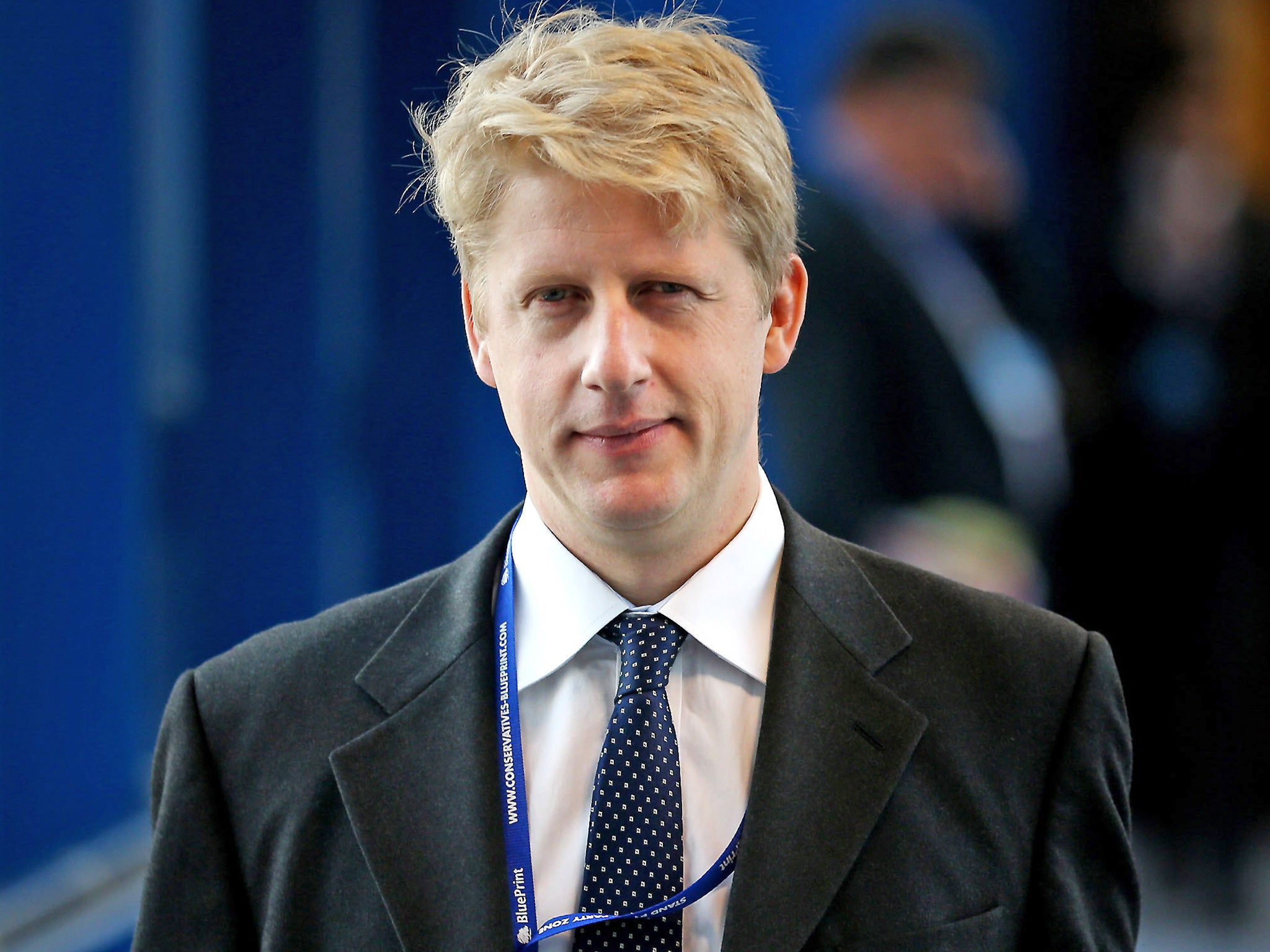Universities need to stop 'ratcheting up' vice-chancellor salaries, says minister
Universities minister Jo Johnson said he was particularly shocked to discover a £125,000 pay rise awarded to Southampton University’s vice-chancellor

Your support helps us to tell the story
From reproductive rights to climate change to Big Tech, The Independent is on the ground when the story is developing. Whether it's investigating the financials of Elon Musk's pro-Trump PAC or producing our latest documentary, 'The A Word', which shines a light on the American women fighting for reproductive rights, we know how important it is to parse out the facts from the messaging.
At such a critical moment in US history, we need reporters on the ground. Your donation allows us to keep sending journalists to speak to both sides of the story.
The Independent is trusted by Americans across the entire political spectrum. And unlike many other quality news outlets, we choose not to lock Americans out of our reporting and analysis with paywalls. We believe quality journalism should be available to everyone, paid for by those who can afford it.
Your support makes all the difference.Universities need to show “serious restraint” in what they pay their vice-chancellors, the universities minister has warned, calling out the Russell Group institution bosses who earn more than the Prime Minister.
Speaking to industry leaders at an education conference in Buckingham, Jo Johnson said it was unacceptable for top institutions to be “ratcheting up” salaries at a higher rate than inflation.
He said he had particular concerns over the vast sums of money being spent on pay packets at a time when students are expressing concern over value for money in their degree courses.
“I think there are legitimate concerns about how the rate of vice-chancellor pay has been growing,” he said. “I would urge the sector to show leadership in this respect.
Calling out Southampton University in particular, he added: “There’s one institution on the south coast that’s seen its vice-chancellor pay rise from £227,000 in 2009-10 to £350,000 in 2015-16. That’s really quite a sharp increase.”
A report earlier this year revealed the average university boss salary to be more than £275,000 in the last academic year – more than six times the average pay of other university staff.
The University and College Union report found 23 British universities had increased pay packages to their vice-chancellors by 10 per cent or more in 2015-16.
Fifty-five university heads earned more than £300,000, and 11 vice-chancellors now have a package worth more than £400,000 a year.
Southampton University vice-chancellor, Sir Christopher Snowden, was paid a salary of £352,000 from when he was appointed in October 2015.
This went up by another 1.1 per cent for the 2016-17 academic year, in line with the higher education national pay award.
Last week, the Russell Group institution was awarded a bronze in the new Teaching Excellence Framework – a significantly lower result than was expected for one of the country’s elite institutions.
Speaking at the Festival of Higher Education at the University of Buckingham on Thursday, Mr Johnson urged respected institutions like Southampton to set an example across the sector by reining in annual increases.
“I think it is possible for the Russell Group to get together and say, ‘we are not subject to an endless upwards rapture that we cannot control’,” he said. “I will be urging the Russell Group as one of our leading mission approaches to take steps to do something about it.”
As universities are private and autonomous institutions, the Government is unable to enforce a restraint on pay or set salary levels.
“We are not going to get into the business of setting up pay levels,” said Mr Johnson.
“These are decisions taken by the universities, normally their governing councils as to the levels of pay.
“That said, they are in receipt of public money, often for research or via the student loan system and that’s why I’ve been calling for restraint for some time.
“So I am concerned at the rates of pay and the rates of inflation in the system.”
When asked if the Government would ever step in in an attempt to control salaries, he said it was something he was “watching very closely”.
“It’s important that these universities embrace these accountabilities and some of them are,” he said. “We want there to be accountability in the system.”
Responding to the minister’s criticisms, Southampton University said Mr Snowden’s salary is agreed by the university’s remuneration committee, which reports to the university’s governing council.
Gill Rider, chair of the university’s council, said: “Sir Christopher has had a distinguished and successful career in the higher education sector and we believe that this salary is reflective of the quality and high level of expertise which he brings to the university.
“This is a large, complex, international institution and we are delighted Sir Christopher has taken this important leadership role and it is appropriate he is remunerated for his experience.”
A Russell Group spokesman said: “As the minister understands well, delivering a high-quality learning experience with access to world-leading research and cutting-edge facilities requires proper management.
“Vice-chancellor pay is decided by official remuneration committees, which include expert representatives from outside of the sector. They understand the importance of attracting and retaining experienced individuals who are capable of managing complex global institutions.”
Join our commenting forum
Join thought-provoking conversations, follow other Independent readers and see their replies
Comments